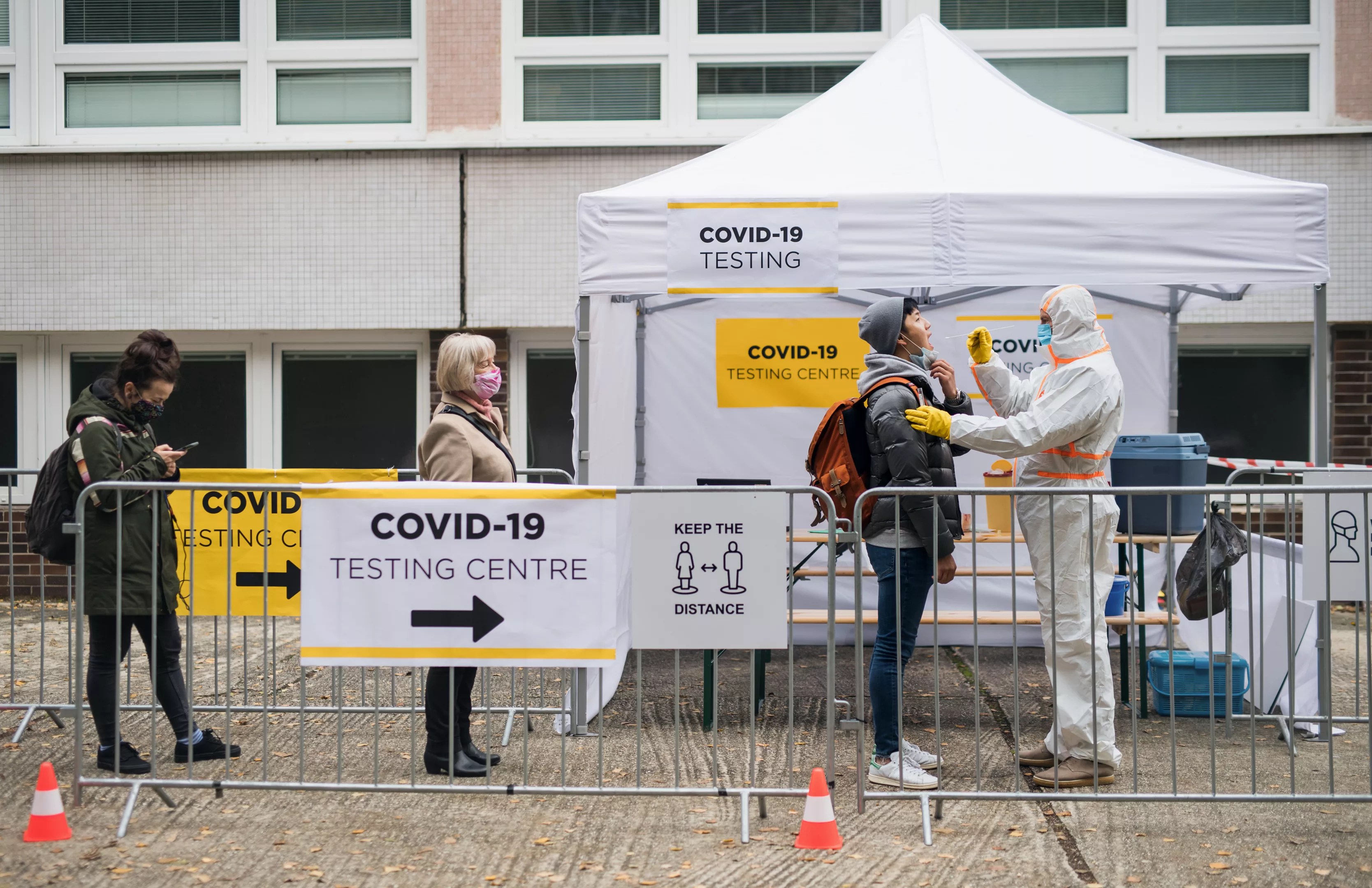
Adobe Stock

Audio By Carbonatix
If struck by a public health emergency similar to the COVID-19 pandemic, Texas’ top decision-makers could “have (their) hands completely tied,” a Texas Tribune article released Tuesday claims.
The report features several public health authorities and doctors who speak to COVID-19’s legacy in the Lone Star State and the ways in which political handling of the pandemic harmed public perception of medical expertise. Health policymakers are also battling cuts to state funding for public health initiatives, and local governments now have less authority to issue ordinances during a medical crisis than they did five years ago.
“A large group of people in the United States think that everyone in authority, not just the government, are stupid liars, and if you’re smart, you’ll do the exact opposite of what they tell you to,” Dr. John Hellerstedt, who led the Texas Department of State Health Services during COVID, told the Tribune. “This sets us up for catastrophic failure in the face of the next inevitable emergency.”
A recent poll by the health policy research group KFF found that national trust in medical expertise has continued to dip over the last 18 months, following a trend that emerged during the COVID-19 pandemic. Only 54% of Americans claim to trust their state and local health authorities, and 61% have faith in guidance issued by the Centers for Disease Control and Prevention; in a 2023 poll that asked the same questions, those agencies were trusted by 64% and 66% of people, respectively.
Trust in health agencies largely falls along partisan lines, KFF reports, a key finding that aligns with what health authorities are seeing on the ground in Texas. The release of the COVID-19 vaccine in late 2020 inspired conservative opposition, and the Pew Research Center found that a year after the vaccine’s release, counties that voted for President Donald Trump saw death rates four times higher than counties that skewed in favor of Joe Biden. In large part, the distrust of vaccines actually centered on vaccine mandates, which conservatives argued went against their civil liberties, and the shot was discredited in the process.
Anti-vaccine sentiments were supported legislatively, too. Texas was responsible for a handful of lawsuits against the Biden administration’s various vaccine mandates, and lawmakers blocked state funding from promoting the vaccine.
Five years after the pandemic, distrust and misinformation surrounding all vaccines are becoming increasingly mainstream, the Tribune found. Whereas 1.4% of Texas kindergarteners were granted vaccine exemptions 10 years ago, 3.9% are now starting school unvaccinated, outpacing the national average.
Health officials say it’s no coincidence that the growing number of parents choosing not to vaccinate their children coincides with one of the largest measles outbreaks in the past decade. As of Tuesday, Texas and New Mexico had recorded 317 cases. One child has died from the outbreak, and two cases were recorded in fully vaccinated individuals.
In 2024, the U.S. recorded 285 measles cases, and experts told the Tribune the “worst is yet to come.”
“We have plenty of [measles] vaccines. We’re figuring out the logistics, but if we can’t get people to take it, this is just going to get worse,” Dr. Ron Cook, the Lubbock public health authority and a family physician, told The Texas Tribune. “People forget how bad this can be. … We still have COVID deaths. We still have flu deaths. And now, measles deaths.”
Dismantling of Public Health Tools
The report said we could also be logistically unprepared for another pandemic.
The Tribune found that Texas spends the fourth least amount of money on public health initiatives nationally and has slashed funding in the years since the pandemic. Whereas the state spent $20 per person on public health in 2020, ranking it the 13th worst in the nation, that funding now sits around $16.80 per person, the lowest since 2009.
Pandemic-induced burnout throughout the healthcare and research industries also led to longtime employees leaving for less intense jobs, the Tribune reported. A National Institute of Health study released last year found that in the fourth quarter of 2021, the rate of employees leaving healthcare jobs was dominated by those choosing to leave the health sector altogether.
“We learned so much going through the pandemic, but then so much of that institutional knowledge walked out the door,” Esmeralda Guajardo, public health administrator for South Texas’ Cameron County, told the Tribune.
Other legislative measures could slow local authorities’ response to future health crises. Throughout COVID, legislators banned cities and counties from instituting mask and vaccine mandates or enforcing school or business closures. Experts warned the Tribune that some of those laws didn’t expire when the pandemic ended, and those that did left a framework for future restrictions.
Another law that has now been passed limits the time Texas can remain under a public health disaster emergency declaration to 30 days. After that point, legislators will have to renew the order each month.
Across the board, these changes have worried Texas’ medical professionals, the article noted.
​​”I’m afraid if we have another pandemic, it would be worse,” Guajardo said. “Not because of the pandemic itself, but because of people choosing to believe what they want.”